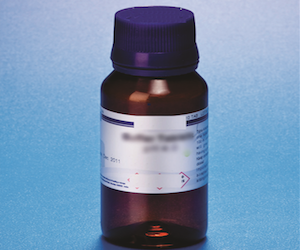Acetyl Chloride
Also known as Ethanoyl chloride, Acetic chloride
| H.S.Code | 29159010 | CAS No. | 75-36-5 |
| Molecular Formula | CH3COCl | Molecular Weight | 78.50 |
| Physical state at 20 °C | Liquid | Refractive index | 1.3886 |
| Odour | Pungent odor | Solubility in water | Reacts with water |
| Density | 1.1 g/cm³ | Flash point | 40 °F |
| pH value | 5 (H₂O, 20 °C) | Melting Point | 51.8 °C |
About Acetyl Chloride
Acetyl chloride having molecular formula CH3COCl, belongs to the class of organic compounds called acyl halides. It is a colorless, corrosive, volatile liquid. Acetyl chloride is produced in the laboratory by the reaction of acetic acid with chlorodehydrating agents. Acetyl chloride is not expected to exist in nature, because contact with water would hydrolyze it into acetic acid and hydrogen chloride.
Acetyl chloride is a reagent for the preparation of esters and amides of acetic acid, used in the derivatization of alcohols and amines. Acetyl chloride is used for acetylation reactions, that is the introduction of an acetyl group.

Acetyl Chloride Specifications
| Packaging | 500 ml |
| Form | Liquid |
| Colour | Colourless |
| Grade | |
| Class | 3 |
| Storage | Store in a cool, dry well-ventilated location |
| Shelf Life |

500 ml